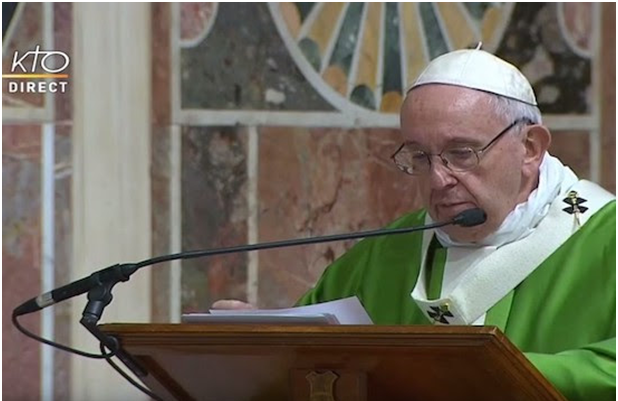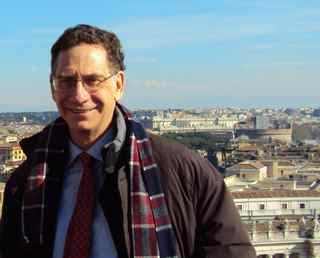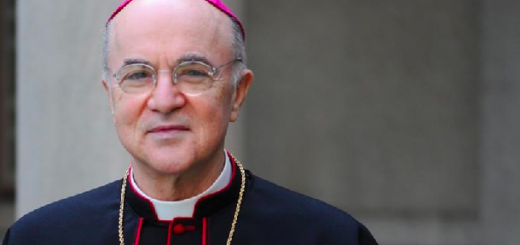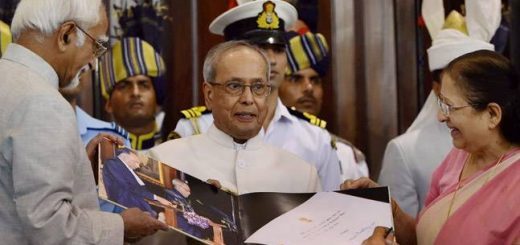Pius XII: Hitler's Pope — Or a Saintly and Heroic Pontiff?
The Vatican has decided to open its secret archives for the war years of World War II (1939-1945). The decision was announced yesterday by Pope Francis.
(Note: Actually, the archives for the entire pontificate of Pope Pius XII will be opened, from 1939 until 1958. But the years that are likely to be most interesting and controversial are those first years, when the Second World War was raging.)
(Note also: This will not happen immediately; the archives will only be open starting in one year, on March 2, 2020 — the 81st anniversary of the election of Pius XII in 1939.)
(Note also: The usual practice in Rome is to open the archives for an entire pontificate, and this is usually done 70 years after the end of the pontificate. In this case, if one calculates 70 years from 1958 — the year Pius XII died — the opening year would normally have been 2028, but the decision has been taken to open the archives about eight years early, in 2020.)
So scholars next March will be able to go into the Secret Archives and consult the material about the Vatican's actions during World War II.
Bishop Sergio Pagano, a scholar of ancient manuscripts who heads the Vatican Secret Archives (and my professor in a Vatican Archives course in paleography in 1985) says historians will discover a "superhuman work of Christian humanism." (link)
In other words, Pagano believes the archives will show that the Vatican and Pope Pius XII, far from assisting the German National Socialist regime of Adolph Hitler, took a firm stand against it, and saved many lives, especially in the Jewish community, whom Hitler and his regime were savagely persecuting.
(Note: British author, John Cornwell, in 1999 published a book entitled Hitler's Pope: The Secret History of Pius XII, arguing that Pius XII was sympathetic to and aided Hitler; the thesis was widely seconded by critics of Pius XII and the Church, and contributed to a modern blackening of Pius's image in world opinion; critics of Cornwell argue that his book is tendentious and unfair to Pius; these critics believe that the documents the Vatican will open to public scrutiny will prove this.)
(Note also: In the court of public opinion, the case of Pope Pius XII has become pivotal for public opinion about the Church itself, and about the Christian faith in general. For those who oppose the Christian message, the Catholic Church is a key obstacle to overcome; and to overcome the Catholic Church, the papacy, the reputation for holiness of the "Holy Father," is a key point to attack; and to attack the papacy, it is useful to expose, criticize and rebuke one or another Pope for immorality or evil actions; thus, the attack of many against Venerable Pius XII, accusing him of being "Hitler's Pope" and complicit in the persecutions of the German regime, is aimed at destroying the reputation for sanctity of Pius, which would then cast suspicion on all Popes, which would then blacken the reputation of the Catholic Church, which would then cast a shadow on Christianity and Christian belief in general. This is why the defense of a compassionate and humane pontiff like Pius XII against his accusers becomes a defense of all honorable Popes, a defense of the Catholic Church in general, and a defense of the Christian faith in general.)
=====================================
The Decision to Open the Archives Is "Welcome News"
Following Pope Francis’s decision to open the archives from Pope Pius XII’s pontificate (1939-1958), I asked long-time Inside the Vatican contributor William Doino Jr., well-known for his leading role in defending Pius XII in the anthology, The Pius War: Responses to the Critics of Pius XII, in public debates, and in many articles and reviews, for his comments. Below is his response:
“The announcement [Note: this link is to the Pope's official declaration that he would allow the archives to be opened, and is worth reading] that Pope Francis has decided to open the remaining archives of Pius XII’s pontificate next year is welcome news indeed.
“We should be very grateful to Francis for this decision.
“Why is it welcome? First and foremost, because it is the moral and just thing to do. For many years, researchers, historians, leaders of the Jewish and Catholic communities, and especially survivors of the Holocaust, have requested—and have a right to know—all the documentation the Vatican has available on Pope Pius XII’s record during World War II. To its credit, the Vatican did publish 11 volumes of primary source material on the Holy See’s wartime activities, in installments, from 1965-1981; and since then has released more documentation [Note: This too is interesting documentation] on the Vatican’s humanitarian efforts during the War. But now that the large volume of remaining documents from Pius XII’s pontificate will soon be officially catalogued and released, these heartfelt requests for a complete record of his pontificate will at last be fulfilled.
“Second, as Francis himself has said, no conscientious Catholic has anything to fear from the truth about Church history, but should welcome it. Indeed, if anyone is going to be surprised by the new Pius XII archives, it may well be Pius XII’s critics, because — as a long-time Pius XII researcher myself — I know that the Vatican is one of the few institutions on earth that is slow to release historical information favorable to its own cause! This happened, for example, when the Vatican finally released the full archives from Pius XI’s pontificate (1922-1939, during which Eugenio Pacelli, the future Pius XII, served as Pius XI’s Cardinal Secretary of State, from 1930-1939) — and it was revealed that the Vatican’s opposition to racism, anti-Semitism, fascism and Nazism at that time was far stronger than previously thought. (For evidence, note these commentaries here, and here).
“Finally, because there have been so many egregious misrepresentations of Pius XII’s life and legacy, the release of these remaining archives, as the Vatican’s chief archivist, Monsignor Sergio Pagano has said [Note: This also is interesting] will finally set the record straight on Pius XII’s impressive pontificate — which, with the abundance of testimonies and primary source material already available, we know was anything but indifferent to the persecution of Jews and others during the Holocaust, and did not, as certain polemicists have claimed, appease the Nazis: Pope Pius XII, in fact, tried to overthrow Hitler. [Note: This too is interesting.]
“As regards what the release of the new archives will mean for the ongoing Cause of Venerable Pius XII, I think it will certainly benefit it, because it removes an oft-heard reason for so much hesitation about Pius XII — namely, that ‘we don’t yet know everything that is in the Vatican archives about Pius XII’s pontificate.’”
“It is not an unreasonable point raised by sincere seekers of the truth, as I wrote in the Times of London after Pope Benedict XVI declared Pius XII ‘Venerable’ in 2009. But we have every reason to believe that these additional archives will only enhance Pius XII’s stature. We also need to trust the Holy Spirit, who has His own timetable for the Church to formally recognize saints.
“Finally, it should be noted that Francis’s announcement on the Pius XII archives comes at a time when even many secular institutions and historians have begun to express more support for Pius XII, acknowledging the growing body of evidence in his favor. The forthcoming release of the additional Pius XII archives can only help foster this ongoing re-evaluation and appreciation.”


















